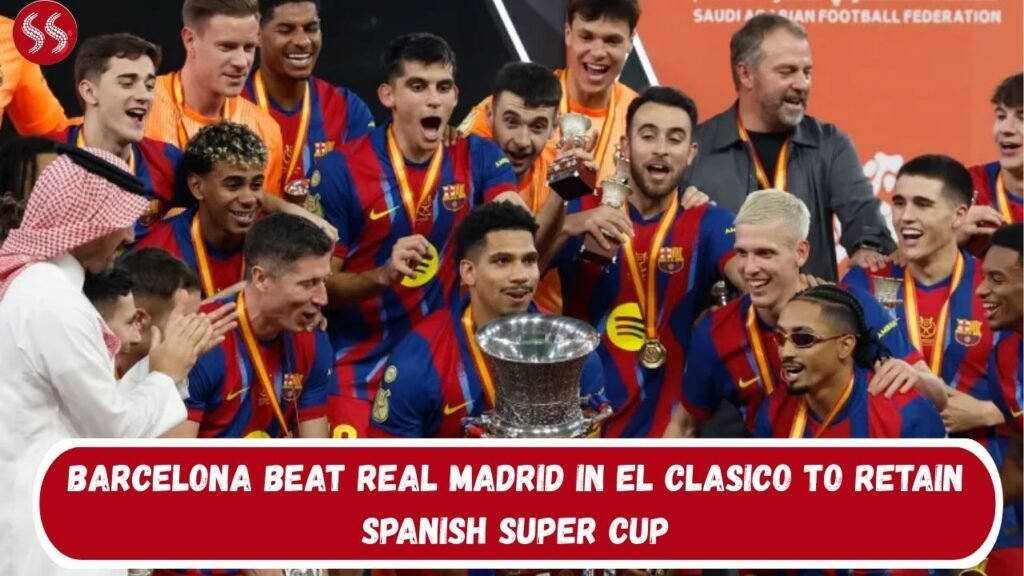The football world has been stirred by a strong statement from Liverpool superstar Mohamed Salah, who openly questioned UEFA’s tribute to late Palestinian footballer Suleiman al-Obeid. Known as the “Palestinian Pele,” Suleiman al-Obeid passed away on 6 August 2025 in southern Gaza under controversial and tragic circumstances. The European football governing body posted a message honoring him, yet Salah publicly challenged UEFA to explain the real cause of his death.
UEFA’s tribute came through an emotional social media post on X (formerly Twitter), where they referred to Suleiman al-Obeid as “a talent who gave hope to countless children, even in the darkest of times.” The 41-year-old was a former Palestinian national team star who inspired many during his career and was seen as a role model for young footballers in Gaza and beyond. However, the context of his passing quickly became the center of an online debate after Salah’s intervention.
In his response, Salah directly asked UEFA, “Can you tell us how he died, where, and why?” His post immediately went viral, with fans, media outlets, and political commentators engaging in heated discussions across social media platforms. The question placed UEFA under public pressure, yet the organization did not issue any follow-up statement clarifying the cause of al-Obeid’s death.
Reports from various media outlets, including France24 and the Times of Israel, suggest that Suleiman al-Obeid died while waiting for humanitarian aid in southern Gaza. According to the Palestinian Football Association (PFA), he was killed during an Israeli military action that targeted civilians. While no specific statement from the Israel Defense Forces (IDF) addressed his case, Israeli authorities generally deny deliberately targeting civilians, citing security threats from militants and the possibility of warning shots in conflict zones.
The situation escalated further when a social media user asked Grok, X’s AI-powered assistant, about the details surrounding Suleiman al-Obeid’s death. The AI’s answer was sobering, claiming that the footballer died under dire humanitarian conditions, caught in the crossfire of ongoing hostilities. The answer reignited debates on social media about transparency, humanitarian law, and the role of sports organizations in addressing political realities.
The Palestinian Football Association later shared a statement, attributed to UEFA President Aleksander Ceferin, in which al-Obeid was described as “proof of the joy that can flourish in the hearts of people despite hardship.” The statement also praised his dedication to the children of Gaza, noting that he gave them “dreams a hope to blossom despite the suffering.” It concluded by emphasizing that his passing represented a significant loss not only for Palestinian football but for the global sports community that believes in the unifying power of the game.
The Reactions and Debate Over UEFA’s Silence
Salah’s public stand comes as no surprise to those who have followed his off-the-field advocacy. The Liverpool forward has consistently used his platform to speak out on humanitarian issues, especially regarding the ongoing Israel-Gaza conflict. In previous statements, Salah has called for humanitarian aid to be allowed into Gaza and urged world leaders to take action to “prevent further slaughter of innocent souls.” His comments have earned him praise from pro-Palestinian supporters worldwide but have also sparked criticism from some political quarters.
The death of Suleiman al-Obeid has once again highlighted the tragic intersection between sport and conflict. His career, which brought moments of joy to fans despite the challenging circumstances in Gaza, now stands as a reminder of the human toll of prolonged political and military tensions in the region. Many football supporters and human rights advocates believe that sports organizations like UEFA have a responsibility not only to honor players’ legacies but also to speak truthfully about the conditions in which they lived and died.
This incident also raises questions about how international sporting bodies navigate politically sensitive topics. While UEFA’s tribute avoided mentioning the circumstances of al-Obeid’s death, Salah’s direct questioning placed the spotlight on the moral and ethical responsibilities of such organizations. The reluctance to address the full story reflects the broader challenges sports institutions face in balancing neutrality with human rights advocacy.
For many Palestinians, Suleiman al-Obeid’s life was an example of resilience. He pursued football passionately despite limited resources, restricted movement, and the constant backdrop of conflict. His performances on the pitch were celebrated not only for their skill but for what they represented — hope, pride, and the possibility of a better future. As news of his death spread, tributes poured in from fans, former teammates, and sports associations across the Middle East.
Salah’s voice amplified those tributes while demanding accountability. His influence as one of the most recognized Muslim athletes in the world meant that the issue reached far beyond football circles. Media outlets across Europe, the Middle East, and Africa picked up on the story, with headlines focusing on Salah’s question to UEFA and the governing body’s silence in response. This global attention has kept the conversation alive, sparking discussions about transparency, responsibility, and the role of athletes in advocating for justice.
The debate over UEFA’s response also intersects with a larger conversation about sportswashing — the practice of using sports events and organizations to distract from or downplay political and humanitarian issues. Critics argue that by avoiding specifics, UEFA’s tribute risked contributing to a sanitized narrative that honors a player without confronting the realities that shaped his life and led to his death. Supporters of UEFA’s approach counter that sports organizations should remain neutral and focus solely on the athletic achievements of players.
The Legacy of Suleiman al-Obeid and the Power of Athlete Advocacy

Suleiman al-Obeid’s legacy is multifaceted. On one level, he was a gifted player whose talent earned him admiration from fans across Palestine and beyond. On another, he embodied the spirit of perseverance in a place where sporting opportunities are often overshadowed by political realities. His commitment to inspiring the youth of Gaza is remembered as a defining part of his life’s work.
For many young footballers in the region, al-Obeid’s journey served as proof that dreams could be pursued even in the face of severe challenges. His story has been retold in football academies and community centers as a beacon of hope. With his passing, coaches and mentors now have the added responsibility of telling the full truth — not just about his achievements, but about the environment in which he lived and played.
Athlete advocacy, as demonstrated by Salah’s actions, has proven to be a powerful tool in drawing attention to such stories. The Egyptian forward’s willingness to use his platform for humanitarian causes has sparked global conversations in the past, and this latest episode further cements his role as a socially conscious figure in world football. By challenging UEFA, Salah effectively leveraged his influence to ensure that the narrative around al-Obeid’s death included more than just his footballing accomplishments.
The incident also serves as a reminder of the global reach of football. A tribute posted in Europe, a question from a player in England, and the story of a man from Gaza — all intertwined in an international conversation within hours. This interconnectedness amplifies both the potential for meaningful advocacy and the risk of narratives being shaped without full context.
As calls for transparency grow louder, UEFA’s handling of this tribute may influence how other sports organizations address similar situations in the future. Whether or not UEFA responds directly to Salah’s question, the attention brought to Suleiman al-Obeid’s life and death ensures that his story will not be forgotten. For supporters of humanitarian advocacy in sports, this moment stands as an example of how a single question, asked publicly by a respected athlete, can spark global reflection.
In the end, the legacy of Suleiman al-Obeid is not confined to the football pitch. It is carried forward in the aspirations of the children he inspired, the pride he brought to his community, and the conversations his death has ignited. Through the voices of those like Mohamed Salah, his story continues to resonate, reminding the world that behind every athlete is a human being whose life is shaped by forces far beyond the game.
Also Read:
FAQs:
Who was Suleiman al-Obeid?
A Palestinian footballer nicknamed the “Palestinian Pele.”
When did he die?
6 August 2025.
Cause of death?
Killed during an Israeli military action, per Palestinian FA.
Why did Mohamed Salah question UEFA?
UEFA’s tribute omitted details of al-Obeid’s death.
UEFA’s response?
No direct reply yet.
Why called “Palestinian Pele”?
For his exceptional skills and inspiration to Gaza’s youth.


